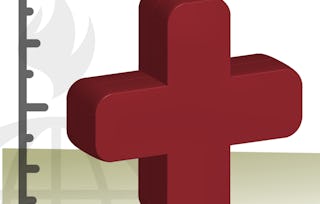Biostatistics is an essential skill for every public health researcher because it provides a set of precise methods for extracting meaningful conclusions from data. In this second course of the Biostatistics in Public Health Specialization, you'll learn to evaluate sample variability and apply statistical hypothesis testing methods. Along the way, you'll perform calculations and interpret real-world data from the published scientific literature. Topics include sample statistics, the central limit theorem, confidence intervals, hypothesis testing, and p values.

Ends soon: Gain next-level skills with Coursera Plus for $199 (regularly $399). Save now.

Hypothesis Testing in Public Health
This course is part of Biostatistics in Public Health Specialization

Instructor: John McGready, PhD, MS
21,727 already enrolled
Included with
(650 reviews)
Recommended experience
What you'll learn
Use statistical methods to analyze sampling distribution
Estimate and interpret 95% confidence intervals for single samples
Estimate and interpret 95% confidence intervals for two populations
Estimate and interpret p values for hypothesis testing
Skills you'll gain
Details to know

Add to your LinkedIn profile
11 assignments
See how employees at top companies are mastering in-demand skills

Build your subject-matter expertise
- Learn new concepts from industry experts
- Gain a foundational understanding of a subject or tool
- Develop job-relevant skills with hands-on projects
- Earn a shareable career certificate

There are 6 modules in this course
Within module one, you will learn about sample statistics, sampling distribution, and the central limit theorem. You will have the opportunity to test your knowledge with a practice quiz and, then, apply what you learned to the graded quiz.
What's included
6 videos1 reading2 assignments
Module two builds upon previous materials to discuss confidence intervals, the need for ample sizes of data, and ways to get around the need for ample sizes of data. The practice quiz helps you prepare for the graded quiz.
What's included
6 videos1 reading2 assignments
Within module three, confidence intervals are discussed at length and ratios are discussed again. Aside from the lectures, you will also be completing a practice quiz and graded quiz.
What's included
8 videos1 reading2 assignments
Within module four, you will look at statistical hypothesis tests, confidence intervals, and p-value. There is a practice quiz to prepare you for the graded quiz.
What's included
6 videos1 reading2 assignments
What's included
11 videos2 assignments
During this module, you get the chance to demonstrate what you've learned by putting yourself in the shoes of biostatistical consultant on two different studies, one about asthma medication and the other about self-administration of injectable contraception. The two research teams have asked you to help them interpret previously published results in order to inform the planning of their own studies. If you've already taken the Summarization and Measurement course, then this scenario will be familiar.
What's included
1 reading1 assignment
Earn a career certificate
Add this credential to your LinkedIn profile, resume, or CV. Share it on social media and in your performance review.
Instructor

Offered by
Explore more from Public Health
 Status: Free Trial
Status: Free TrialJohns Hopkins University
 Status: Free Trial
Status: Free TrialJohns Hopkins University
 Status: Free Trial
Status: Free TrialJohns Hopkins University
 Status: Free Trial
Status: Free TrialJohns Hopkins University
Why people choose Coursera for their career




Learner reviews
650 reviews
- 5 stars
85.38%
- 4 stars
12.92%
- 3 stars
1.07%
- 2 stars
0.30%
- 1 star
0.30%
Showing 3 of 650
Reviewed on Jul 8, 2021
Excellent course, excellent teaching. Prof McGready knows his stuff and also knows how to teach it. The projects exercices are fun to work on and see how statistics is used in research.
Reviewed on Jul 18, 2023
Good details in content of online lectures and good testing questions setting for students to have deeply understanding of biostatistics on Hypothesis Testing.
Reviewed on May 21, 2020
You have to use outside sources and practice questions to really understand the material. This course makes you think and demands that you know the information. It was a great class. Thank you.
Frequently asked questions
To access the course materials, assignments and to earn a Certificate, you will need to purchase the Certificate experience when you enroll in a course. You can try a Free Trial instead, or apply for Financial Aid. The course may offer 'Full Course, No Certificate' instead. This option lets you see all course materials, submit required assessments, and get a final grade. This also means that you will not be able to purchase a Certificate experience.
When you enroll in the course, you get access to all of the courses in the Specialization, and you earn a certificate when you complete the work. Your electronic Certificate will be added to your Accomplishments page - from there, you can print your Certificate or add it to your LinkedIn profile.
Yes. In select learning programs, you can apply for financial aid or a scholarship if you can’t afford the enrollment fee. If fin aid or scholarship is available for your learning program selection, you’ll find a link to apply on the description page.
More questions
Financial aid available,





